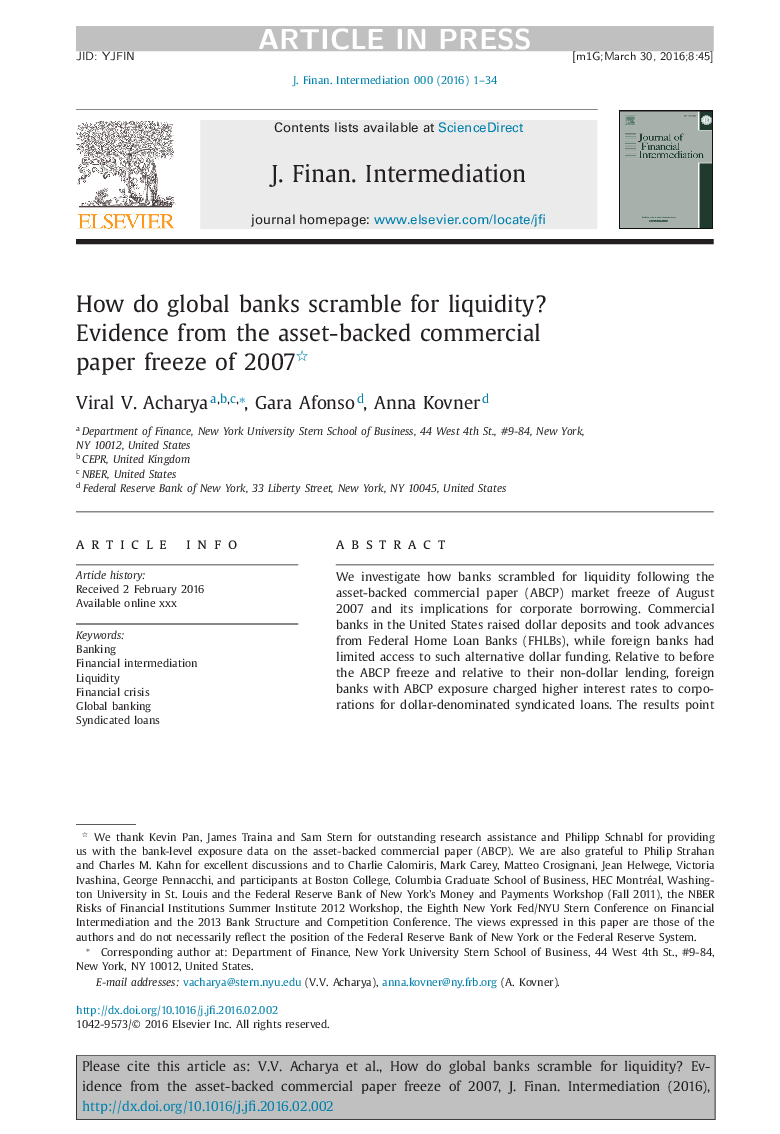| Article ID | Journal | Published Year | Pages | File Type |
|---|---|---|---|---|
| 5100636 | Journal of Financial Intermediation | 2017 | 34 Pages |
Abstract
We investigate how banks scrambled for liquidity following the asset-backed commercial paper (ABCP) market freeze of August 2007 and its implications for corporate borrowing. Commercial banks in the United States raised dollar deposits and took advances from Federal Home Loan Banks (FHLBs), while foreign banks had limited access to such alternative dollar funding. Relative to before the ABCP freeze and relative to their non-dollar lending, foreign banks with ABCP exposure charged higher interest rates to corporations for dollar-denominated syndicated loans. The results point to a funding risk manifesting as currency shortages for banks engaged in maturity transformation in foreign countries.
Related Topics
Social Sciences and Humanities
Business, Management and Accounting
Strategy and Management
Authors
Viral V. Acharya, Gara Afonso, Anna Kovner,
